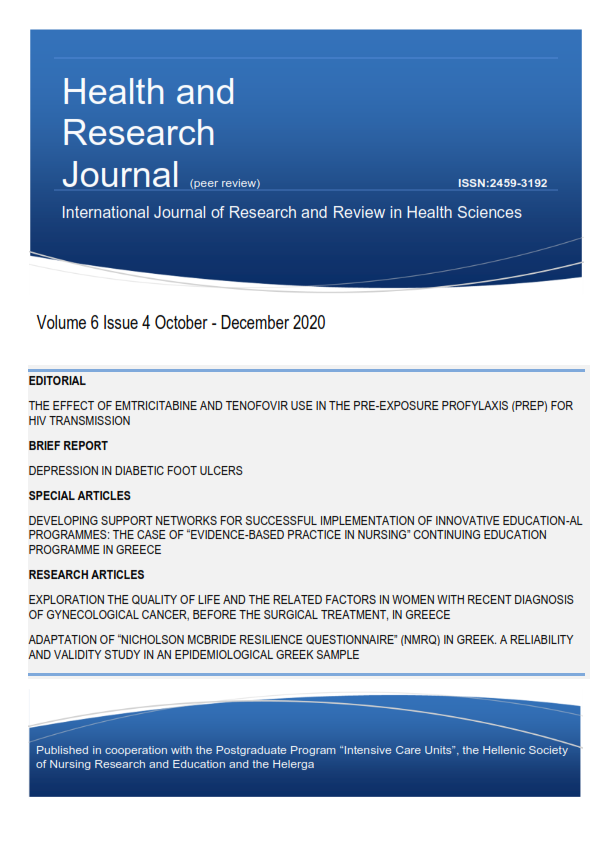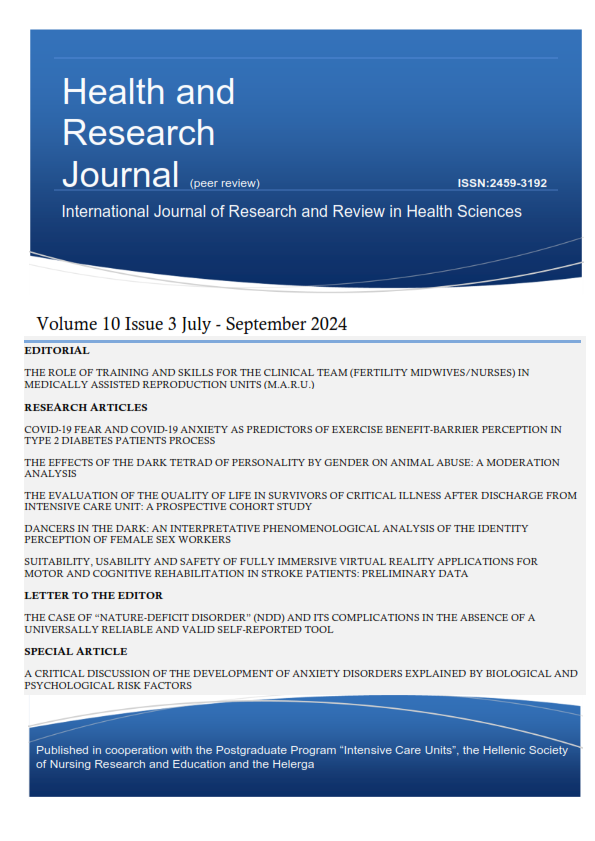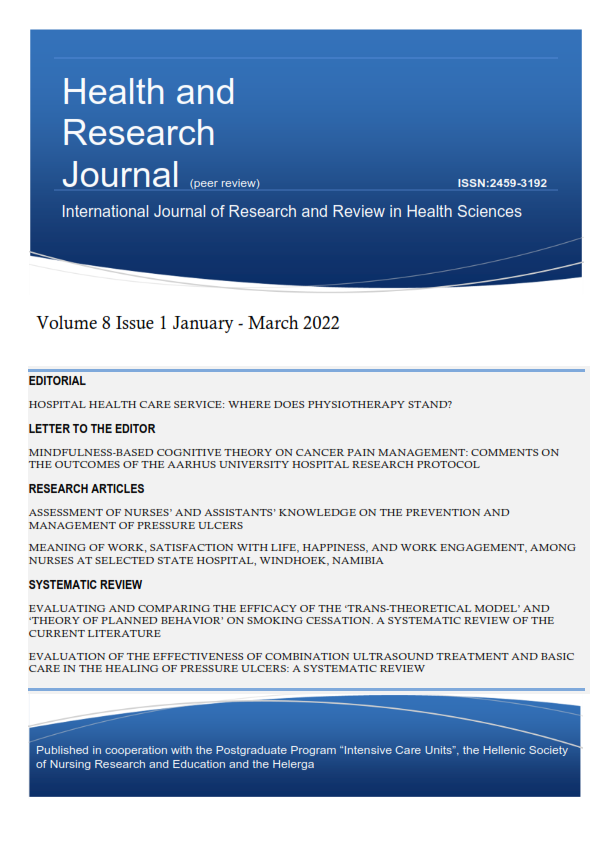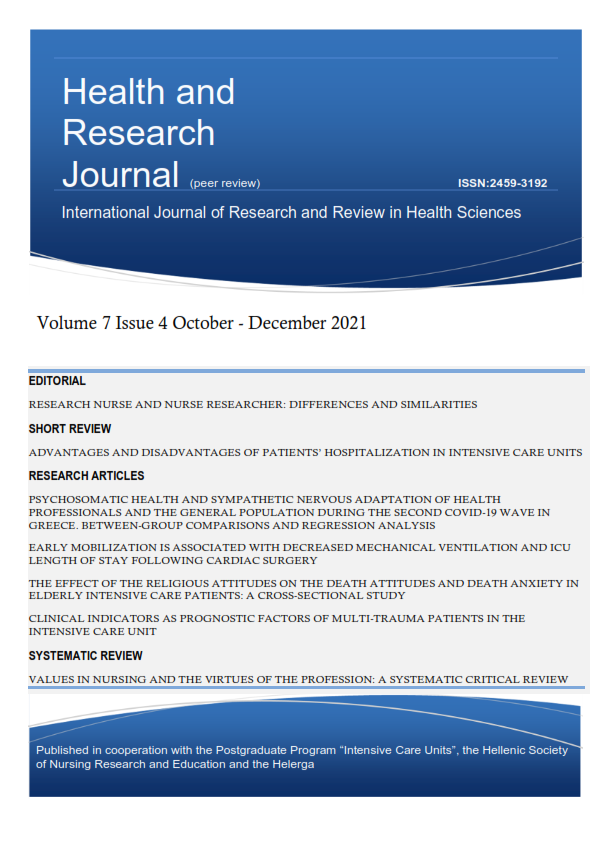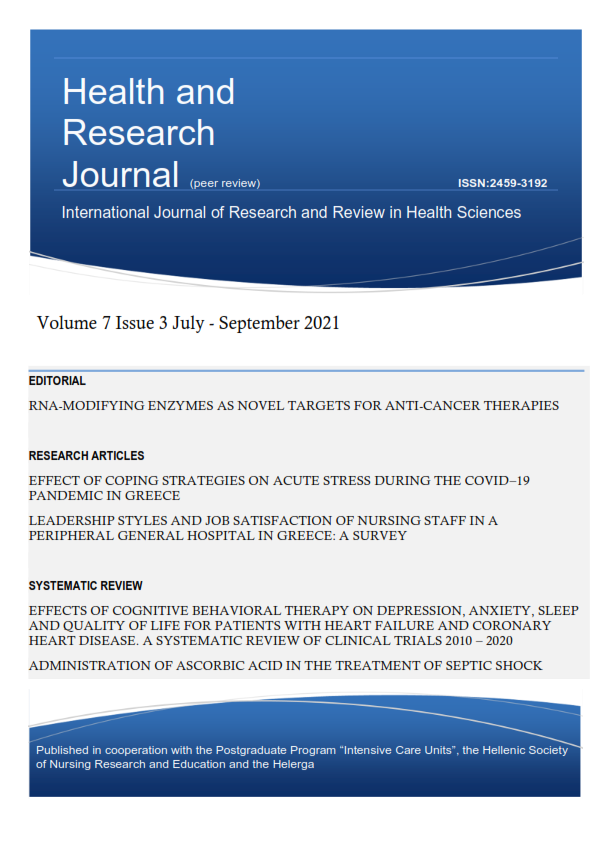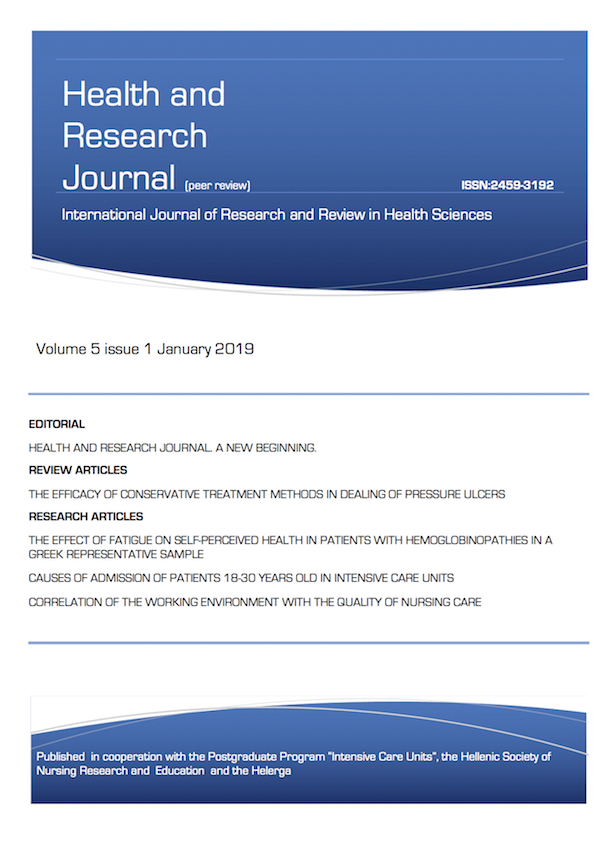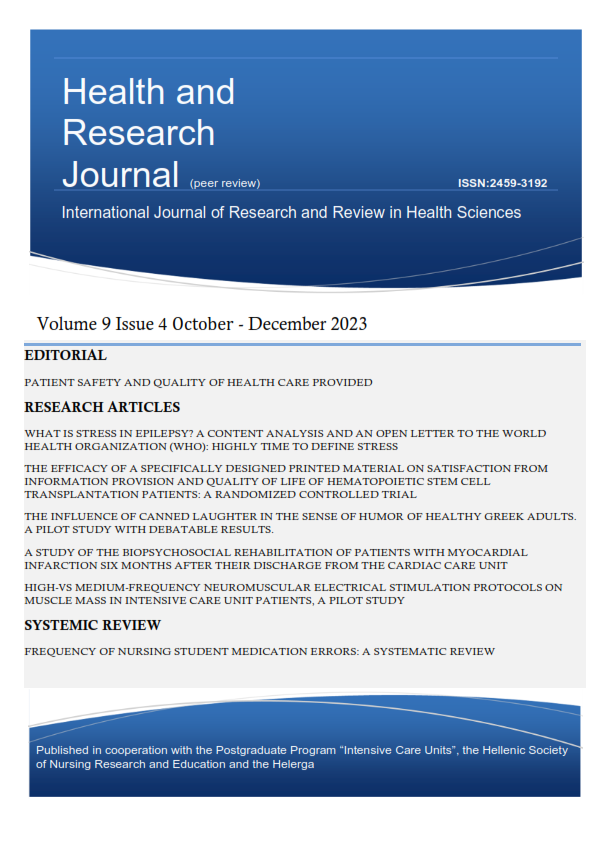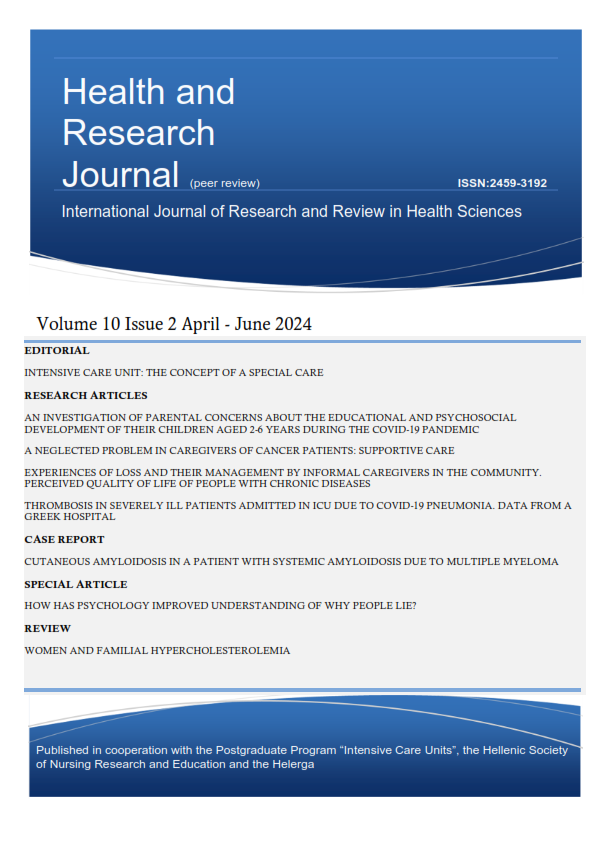Introducing the Greek adaptation of acute stress disorder scale’ (ASDS). High reliabil-ity and validity in an epidemiological sample
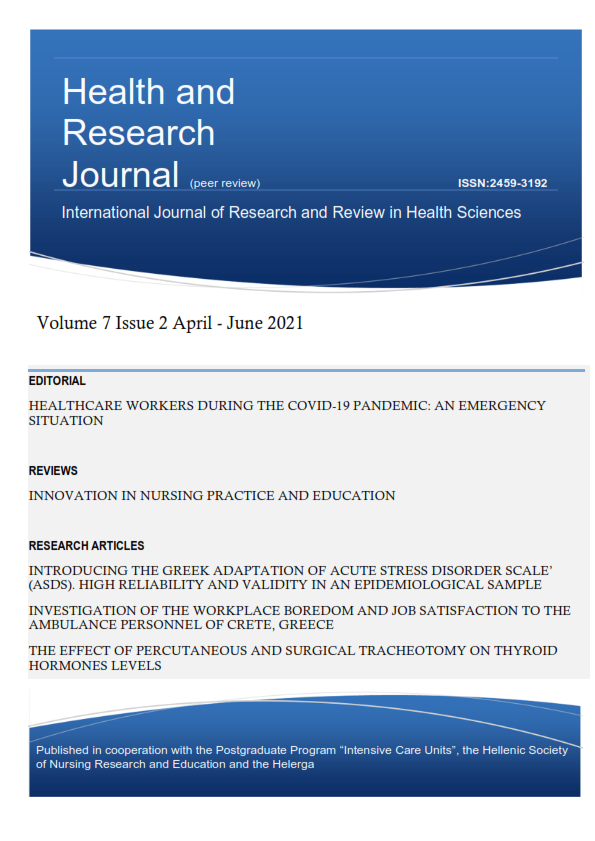
Abstract
Abstract
Background: Acute stress disorder is a common and profound psychological condition. It concerns the physiological activation of the neuroendocrinological bodily response against any stressors within minutes of exposure to the stimuli, and under some particular criteria until the end of the first month.
Aim: The present study is conducted with the view of providing a new, culturally adapted, self-reported measure of acute stress in the Greek population.
Material & Methods: A variety of methods and analysis were employed and performed accordingly, in order to translate the original English questionnaire and to test the new Greek version for its reliability and validity in a Greek sample (N= 1,158).
Results: The most important findings conclude a high validity of the Greek version (α= .925) and a strong correlation with resilience and psychosomatic symptoms.
Conclusion: It is highly recommended for future studies concerning the Greek population to adapt and test-retest the questionnaire, as well as for practitioners to use the Greek version of ASDS in clinical and private practice.
Article Details
- How to Cite
-
Pilafas, G., Strongylaki, N. P., Menti, D., & Lyrakos, G. (2021). Introducing the Greek adaptation of acute stress disorder scale’ (ASDS). High reliabil-ity and validity in an epidemiological sample. Health & Research Journal, 7(2), 65–73. https://doi.org/10.12681/healthresj.26789
- Section
- Original Articles
Copyright notice:
Authors retain copyright of their work and grant the Health and Research Journal the right of first publication.
License:
Articles are published under the Creative Commons Attribution 4.0 International License (CC BY 4.0). This license permits use, sharing, adaptation, distribution, and reproduction in any medium or format, including for commercial purposes, provided that appropriate credit is given to the author(s) and the original publication in this journal, a link to the license is provided, and any changes are indicated.
Attribution requirement:
Any reuse must include the article citation and DOI (where available), and indicate if changes were made.



